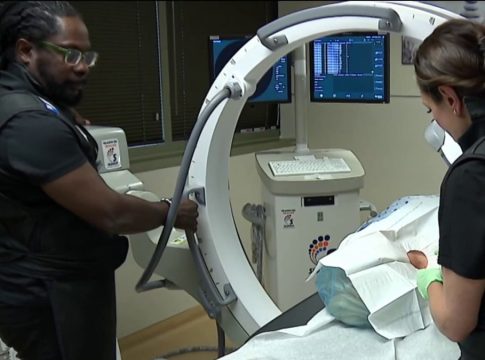Understanding the Silent Struggles of First Responder Families
The challenges faced by first responders in managing their mental health are well-documented. However, an often-overlooked narrative is the impact these struggles have on their spouses and partners. This silent battle can take a heavy toll on those who support our heroes.
Trauma in Partnership: A Shared Journey
Meg Hawkins and Eric Provow exemplify the complexities of these relationships. With over three decades of combined service in various first responder roles, their story sheds light on the shared trauma that often accompanies this profession. Hawkins, a police officer, and her husband, Provow, a retired combat veteran and firefighter, chose to share their experiences in a public forum to help dismantle the stigma surrounding mental health.
Provow’s experience with suicidal thoughts exemplifies the severe mental health challenges that can arise from the pressures of his work. "I felt that if I take my own life, then I no longer suffer, and she no longer has to suffer," he reflected during a candid interview.
The Hidden Toll on Partners
The mental health struggles of first responders extend beyond themselves; they affect their families too. Hawkins, for instance, faced her own trauma after a critical incident involving Provow, leading to her diagnosis of moderate PTSD. "I was going 110 miles an hour always focusing on Eric," she explained, revealing how the stress of caring for a loved one can overwhelm one’s mental and emotional well-being.
Recognizing the Signs
The risk for partners of first responders includes:
- Anxiety and hypervigilance
- Emotional exhaustion
- Symptoms of PTSD
Understanding these signs can be a crucial step towards seeking help and developing coping strategies.
Finding Support and Solutions
Hawkins eventually sought help herself through an innovative medical treatment known as Stellate Ganglion Block (SGB). This procedure, while traditionally used for chronic pain, has shown promise in alleviating PTSD symptoms by calming the brain’s stress response. “It’s like flipping a switch,” said Dr. Marina Protopapas, who administers this treatment, pointing out its potential benefits for those affected by trauma.
The efficacy of SGB is still under study, but initial results have been promising. Notably, the U.S. Department of Veterans Affairs is actively evaluating its use as a treatment option for PTSD.
Empowering Change: Advocacy and Support
Hawkins and Provow’s journey did not end with their personal experiences. They co-founded a non-profit organization, Making Everything Good, aimed at supporting veterans, first responders, and their families. “The spouses and partners of first responders are the silent warriors,” Hawkins noted, acknowledging their often-unrecognized struggles.
This initiative is working towards creating local support groups and wellness applications to assist those dealing with mental health challenges, emphasizing the importance of community and shared resource.
Taking Action
For partners of first responders, the journey to wellness often involves:
- Seeking professional help when needed.
- Connecting with support groups for shared experiences.
- Prioritizing self-care to manage stress and restore balance.
In sharing their story, Hawkins hopes to provide comfort and validation to those grappling with the hidden wounds of trauma. "Post-traumatic growth starts with sharing your story," she said, reiterating the importance of community and support in healing.
As we begin to recognize the mental health landscape surrounding first responders and their families, we cultivate an environment where open dialogue can flourish, helping break the chains of stigma and isolation.

Covers wellness, nutrition, mental health, and daily life tips.
Bio: Talia brings a background in health journalism and holistic living to help readers live better, one tip at a time.

